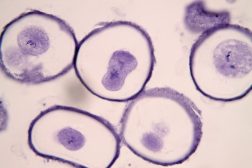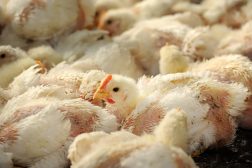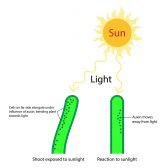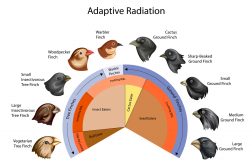Affinity chromatography
(Science: investigation) a technique of analytical chemistry used to separate and purify a biological molecule from a mixture, based on the attraction of the molecule of interest to a particular ligand which has been previously attached to a solid, inert substance.
The mixture is passed through a column containing the ligand attached to the stationary substance, so that the molecule of interest stays within the column while the rest of the mixture continues through to the end. Then, a different chemical is flushed through the column to detach the molecule from the ligand and bring it out separately from the rest of the mixture.
Dictionary > Affinity chromatography
You will also like...

Movement of Molecules Across Cell Membranes
Molecules move within the cell or from one cell to another through different strategies. Transport may be in the form of..

Meiosis – The Genetics of Reproduction
Meiosis is a form of cell division that creates gametes. It is comprised of two divisions that in the end, the resulting..

Selective Breeding
Gregor Mendel's studies into Monohybrid and Dihybrid crossing and Charles Darwin's study of evolution and natural select..

Kidneys and Regulation of Water and Inorganic Ions
The kidneys are responsible for the regulation of water and inorganic ions. Read this tutorial to learn about the differ..

Plant Auxins – Phototropism & Geotropism
Plants produce hormones to regulate their growth. Auxins, for instance, influence plant growth. Know the role of auxin i..

Adaptive Radiation
The diversification of several new species from a recent ancestral source, each adapted to utilize or occupy a vacant ad..

